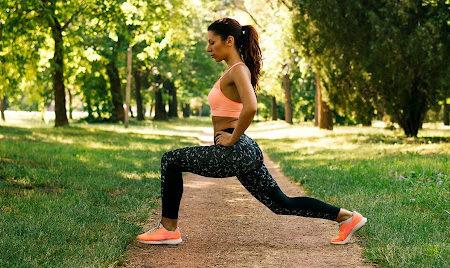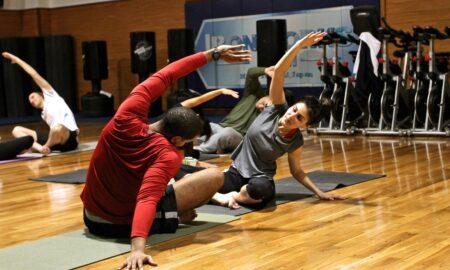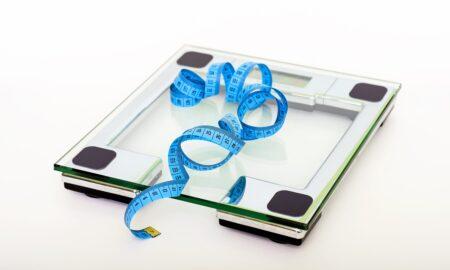Photography by Michael Neveux
Both Randy and I were six weeks out from the New England Bodybuilding Championships. As if he wasn’t discouraged enough about his chances, I was leaning toward dropping down into the light heavyweights, the same weight class he would be in. Though I’ve technically been competing as a heavyweight for the past three years, a more fitting class for me would be known as "barely heavyweight." In contest condition, I’d weighed in at various times between 201 and 203 pounds when the limit for the class was all the way up to 225.
That meant that usually I was one of the smaller guys in my class. The only guys who ever made me look huge were the ones who probably should have been basketball players but got it in their heads—heads perched atop tall bodies with gangly limbs—that they’d make good bodybuilders. Either that or they tried basketball and sucked at it. Point is, building a thickly muscled physique is a losing battle for very tall men, just as Lee Priest would have been foolish to think that at a very stocky 5’3", he belonged on the NBA courts with LeBron and Kobe. I suppose he could have too—as the leprechaun mascot for the Boston Celtics. Just jokes, Lee, just jokes!
So anyway, dropping down to
198 1/4 to make lighty heavy wasn’t going to be too difficult for me. I used to note sarcastically that as a heavyweight, I was never more than a couple of missed meals and a healthy bowel movement away from light heavy. Of course, that didn’t sit well with Randy. Now I was one more person he couldn’t beat, as far as he was concerned.
"Kid, if you’re worried about me, you really have problems," I said. "There’s one guy in our class I know of who already won his class at the Junior Nationals a couple years ago and is using our show as a warm-up to qualify for the Nationals. He’s only 5’4" and a light heavyweight, for Pete’s sake—a freaking fire hydrant. You have to stop losing sleep over who else is going to be in the show. There will be some very good competitors, but you just worry about you."
"I’m worried. I can’t help it," Randy said, glumly hitting a side-chest pose in the gym’s mirror and shaking his head in disgust. It was back day, and we were starting out with parallel-grip chins. I jumped up first and knocked out 12. My weight was around 215. Randy was down to 195. He grimly got his grip on the bar and pulled himself up eight times, struggling on the last one. I scowled, knowing he was punking out, and went to the front desk to ask for the leather belt with the chains on either end that enables you to add weight for chins or dips. Why must it be kept back there? Apparently, the gym owner is concerned that some guys would love to steal it and hang objects from their waists and do weighted chins at the local park from the monkey bars. Or perhaps that it would make a dandy accessory to an S&M outfit.
"What are you doing?" Randy asked as I returned, swinging the belt as if I were a Hell’s Angel about to jump into a rumble.
"We’re adding weight, silly. What does it look like?" I fetched a 25-pound plate and leaned it against the base of the cable crossover/chin station, then threw the belt at his feet with a jingle of steel.
Randy looked aghast. "Are you serious? Dude, I’m dieting!"
Oh, boy, I thought. Here we go. Nearly all bodybuilders think that as they diet down for a contest and lose bodyfat, they’re bound to lose strength. The logic is that with the increase in cardio and decrease in complex carbs and overall calories, there simply isn’t enough fuel to move the same weights you do in the off-season.
Not that there isn’t something to that, but I look at it differently. If you’re dieting correctly and taking in just the right amount of protein, carbohydrate and fat, you should be able to maintain your muscle mass—assuming you keep training heavy. Training lighter is a mistake I’ve made in the past with disastrous results. In the spring of ’03 I took the easy way out while preparing for two shows. I switched from a solid mix of free weights and machines to using mostly machines and cables. Even then I wasn’t training as heavy as I could have. I also killed myself with up to an hour and a half of very intense interval cardio every day in the final six or seven weeks.
The result was that at the second show I weighed in at 197 pounds. I nearly fainted at the weigh-ins because I hadn’t been under 200 pounds in eight years. Or maybe I nearly fainted from the stench of all the Pro Tan and farts around me from my fellow bodybuilders—all of whom were fully carbed up, constipated and producing roughly a metric ton of methane gas each. I looked like crap at the show and failed to make the top five for the first time in 10 years. (I tell people that it wasn’t me that year, just a skinny look-alike out to sully my good name.)
Back to my new theory, formed in the wake of that shameful loss of enough muscle to feed a family of four for a week. If you can indeed maintain your muscle mass while dieting, you should be able to handle the same weights as in the off-season, or at least close to it. Think about it: Bodyfat doesn’t make you stronger, so why would losing it make you any weaker? IFBB pro Art Atwood told me he actually gets stronger when he diets because he’s so much more focused on his training.
Think about Ronnie Coleman too. In his famous training video "The Unbelievable," he’s five weeks out from the ’01 Mr. Olympia and dieted down, in very close to contest condition, yet moves some ridiculous weights. He does an 800-pound deadlift, 600-pound front squats and 200-pound dumbbell flat-bench and incline presses. Ronnie obviously doesn’t drop his heavy basic free-weight exercises and switch to machines and cables for higher reps when it’s time to get ripped and compete. As a result he’s in a league of his own. ALL With all that in mind, I turned to Randy. "You’ve dropped more than 15 pounds of fat from your body, correct?"
"Yeah, so?"
"So why are you doing worse on pullups, ya knucklehead? You have less weight to pull up!"
"This diet is just kicking my ass—and the cardio."
"Wah, wah, wah!" I jeered. "Somebody call a wambulance! It’s all in your head. You think you should be getting weaker, so you are. If you haven’t noticed, I’ve been getting stronger on a lot of things."
"I guess. I mean we haven’t been able to train together too often."
"Take my word for it. Pullups are something you should always get better at when you drop some pounds of bodyfat." With that, I strapped on the 25 I’d meant for him to use and knocked out another 12 reps. I slid the belt off my hips and pointed to it.
"You’re up. I want to see at least eight reps." Randy looked at me as if I was crazy, but then he paused. Something seemed to click in his head. I saw his face change in an instant, and I knew that he got it. A determined grimace replaced the hapless pout, and he strapped himself onto the handles, then kicked away the milk carton we used to stand on.
"Light weight!" he shouted, and several nearby members turned in curiosity. That was Ronnie Coleman’s catchphrase that he used to motivate himself before each set. Randy got seven reps and got stuck halfway up on the eighth. He struggled, face turning crimson, until at last his back and biceps completely gave out and he dropped down from the bar. The difference in effort from his first to second set was like night and day, and it had all been a simple matter of the way he thought about precontest training.
"Not bad at all, kid, not bad at all," I said, clapping him on the back. "You keep that up, and not only will you not lose any muscle, but you may even gain a pound or two over the next six weeks."
"You think, really?" he asked, still trying to catch his breath.
"Absolutely." I went and grabbed a 45 for my next set. "Now I have to make sure you don’t get bigger than me!" IM




















You must be logged in to post a comment Login